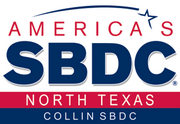There are a lot of compelling reasons to start a small business, or to be self-employed. The freedom to be your own boss, set your own hours, and decide which projects to take on can be a “dream job” situation for many. Unfortunately, statistics show that many self-employed or home-based businesses fail often due to poor financial planning. In this blog, we’ll talk about how to manage your money when you are self-employed so that you can continue your dream job and eventually, retire or take that dream vacation.
Five Tips for Managing Money when Self Employed
1. Know your expenses:
A lot of small businesses, especially home-based businesses, do not require a lot of money to start. However, there are other costs associated with running a business. When developing your business plan, make sure you carefully outline a spending plan. You will want to include all expenses, not just the obvious ones like a computer, printer or office supplies. Other costs you’ll need to consider include:
- Childcare
- Gas
- Insurance
- Dry Cleaning
- Lunch
- Health Insurance
- Taxes (yearly and even quarterly)
2. Manage your income:
When self-employed, your income may significantly vary each month. You’ll want to make sure you determine your average monthly income. Plan carefully for best-and worst-case scenarios in a changing income stream. During the months when you make more money than planned, set aside the extra amount into a savings plan that you can use during the tougher or lower-income months.
3. Manage your Expenses:
Be careful about your spending, especially when incurring additional debt. Try very hard not to rely on credit cards that carry high interest rates and can derail your expense plan. Instead of using a credit card for business expenses, consider opening an account where those expenses are paid from, or taking out a small business loan.
Consider every purchase and decide if it is essential to your business. Just like in your personal finances, those small purchases can add up to become big money, or worse, big debt. For instance, do you really need the higher cost matching file folders, or will the cheaper manila folders serve the purpose just as well? Small expenses add up.
4. Understand your Taxes:
Don’t forget to plan for unexpected tax costs. For instance, some self-employed individuals may have to pay up to a 15% self-employment tax, in addition to their regular income tax. Make sure you meet with a financial advisor regularly to avoid a large tax obligation at the end of the year. You may need to make regular tax payments each quarter to avoid paying more money in penalties for under-withholding. Get a clear picture of what your tax amount due will include. Some unplanned taxes may include:
- Property Tax
- City and State Taxes
- Sales Tax on Goods Sold
5. Get Help:
Consider having a team of professionals to help you successfully navigate potential challenges. You should not expect to learn everything there is about managing your money when self-employed. Add team members consisting of:
- Accountant or CPA
- Financial Advisor
- Lawyer
- Insurance Agent
- Business Advisor
Work smarter not harder:
Yes, this is an adage you might be tired of hearing, but it becomes especially true for small business owners and the self-employed. There is no reason to reinvent the wheel and it is smart business to know where to go for help. The Small Business Administration (SBA) estimates that 99% of businesses in the US are small businesses; take advantage of the resources from the SBA and your local resources like SBDC.
For additional resources on how to manage your money if you are self-employed or if you own a small business, add us to your list of team members. Our experts at the Small Business Development Center – SBDC – serving Collin and Rockwall Counties, Texas, can help keep you on a successful track.
Blog post by: Michael McClinton



